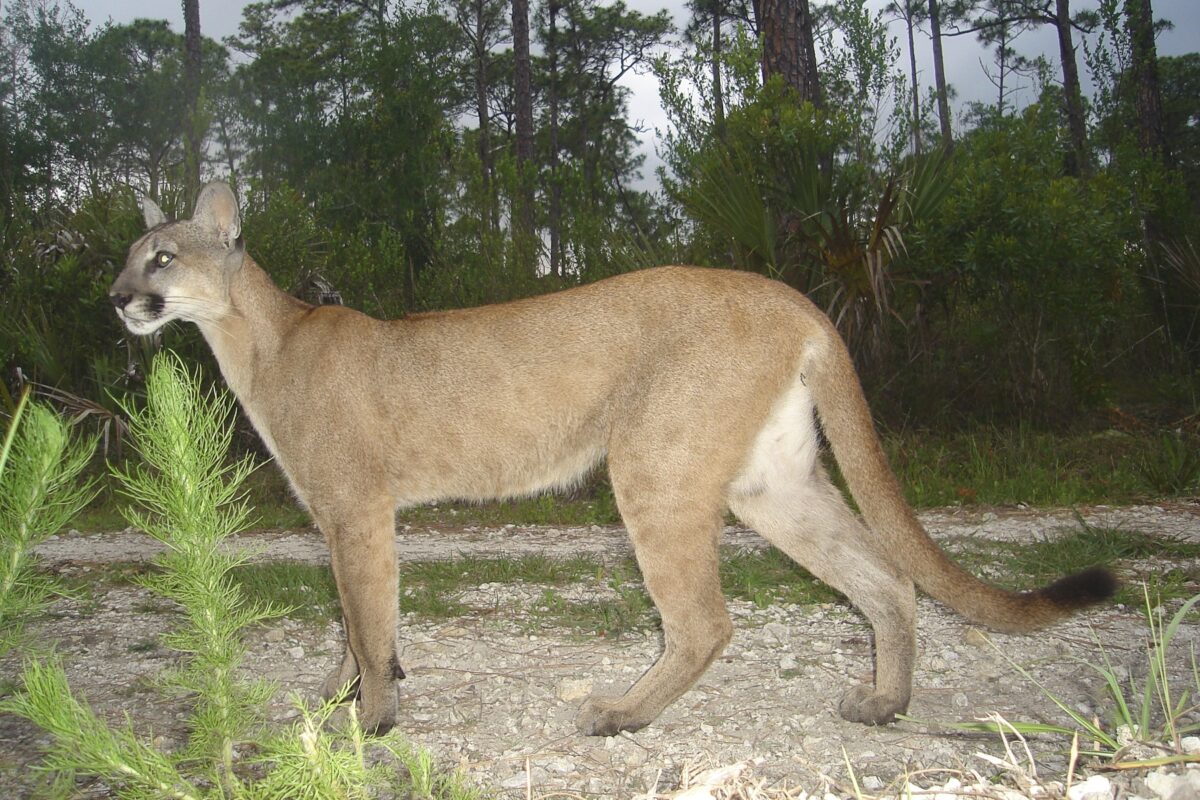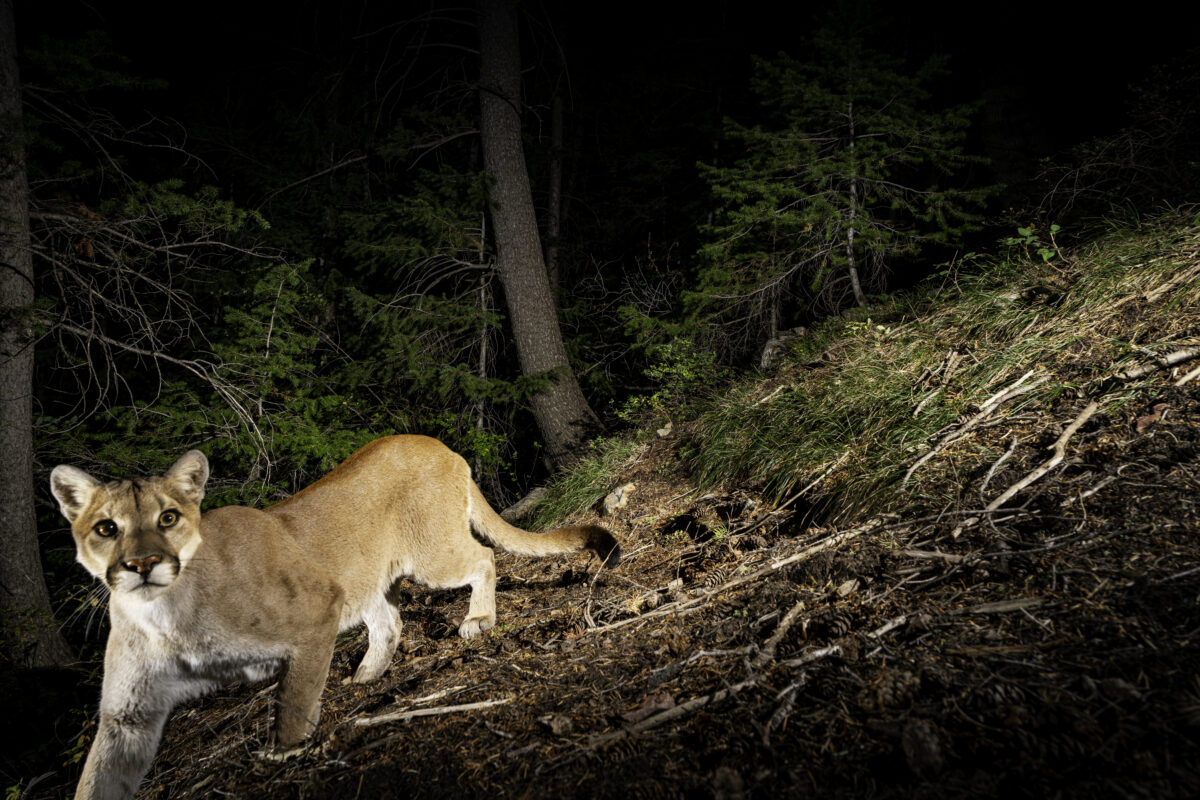By Paige Munson, Science and Policy Coordinator
July 1, 2024
In June, Mountain Lion Foundation staff Brent Lyles, Josh Rosenau, and Paige Munson were busy in Colorado, working to support mountain lions and communities living in lion country. We approached the work with the Foundation’s three main program areas in mind: education, advocacy, and coexistence.
Education
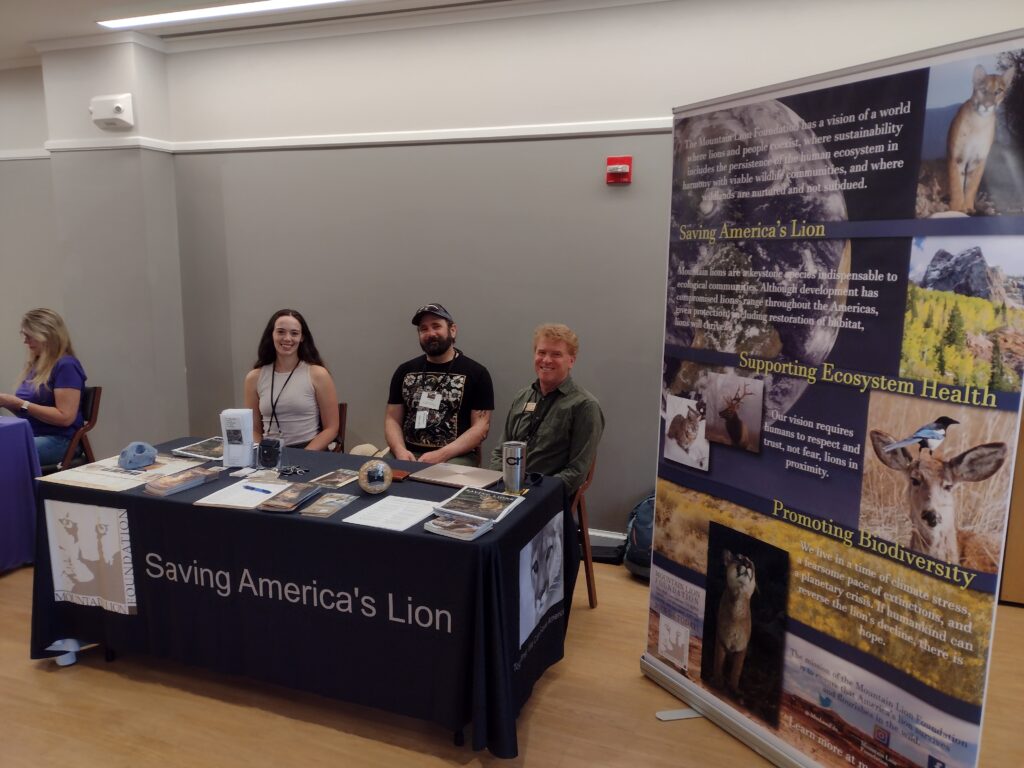
We were excited to attend the 103rd Annual Meeting of the American Society of Mammalogists. Here, we listened to the findings of ongoing research on mountain lions, species interactions, conservation biology, wildlife management, and more. Attending these conferences and talking with experts in the field helps our staff stay up to date with the latest research, in and out of print. We also set up an information table in the conference’s exhibit hall; this brought us more opportunities to connect with the conference attendees (working biologists from across the country), and it allowed us to offer a variety of resources about peaceful coexistence with mountain lions in Colorado and beyond.
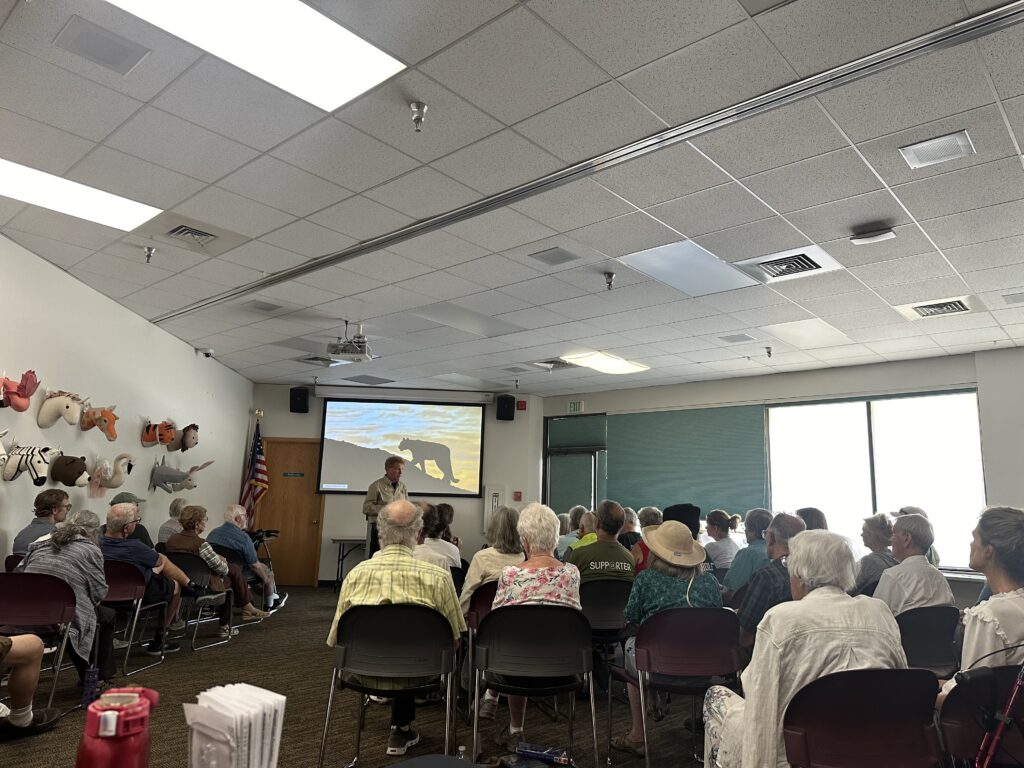
After three days of learning, discussion, and awe-inspiring stories, we took on the role of educator at the Boulder Public Library. Here we hosted a crowd of eager community members looking to learn more about the mountain lions with which they share their state. Brent shared the story of the young male mountain lion who went on the longest known dispersal journey of any mammal. Afterwards, Brent explained the history of mountain lion hunting in Colorado and the current challenges the species faces in the state, including overhunting, roads, development, policy decisions, and human-wildlife conflict.
Many members of the audience came to the presentation with insightful questions regarding mountain lion biology, how humans and mountain lions interact, and what we can all do to help them. We aimed to answer these questions while empowering the audience to be communicators themselves about the oft misunderstood mountain lion.
Advocacy
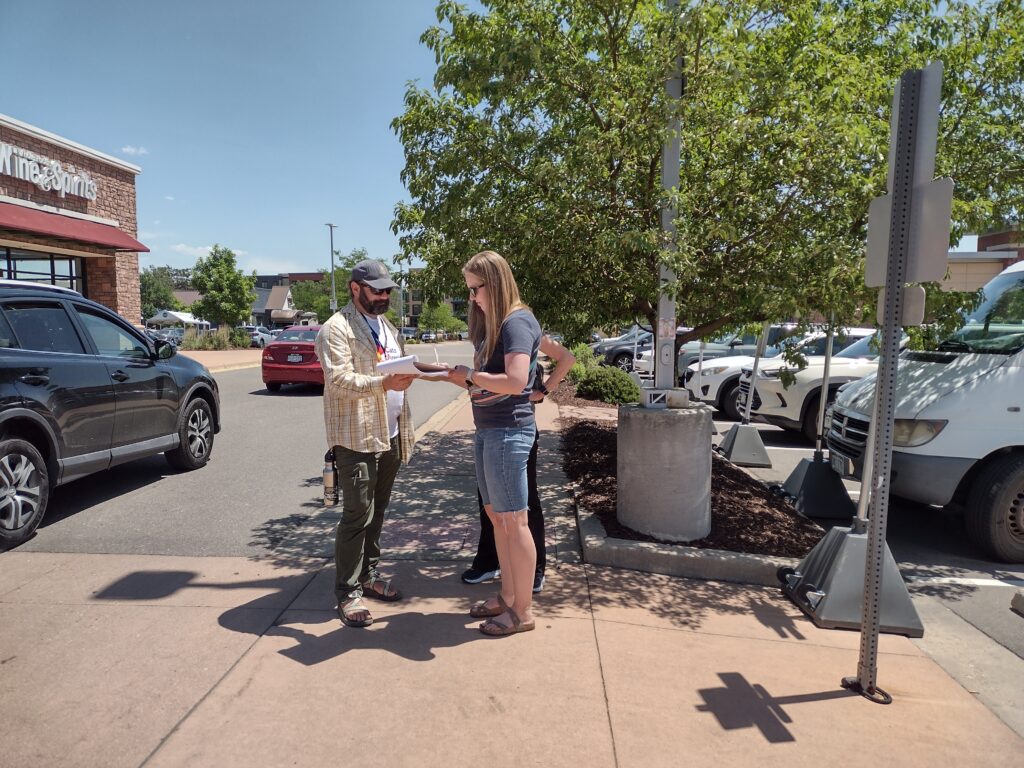
The CATs Campaign
We also advocated on behalf of Colorado’s lions in two ways. The first was through the Mountain Lion Foundation’s support of the Cats Aren’t Trophies (CATs) campaign,a citizen-led effort to put Proposition 91 on the ballot this fall in Colorado. If passed, Prop 91 would prohibit the trophy hunting of mountain lions and end the hunting of trapping of bobcats in the state. This would be an historic achievement for Colorado, making it only the second state to fully protect mountain lions in perpetuity at the state level — the first was California, over 30 years ago. The measure would also protect the endangered lynx, in hopes that the species will one day recover in Colorado and be free from hunting and trapping pressure as well.
The Mountain Lion Foundation supports the ability of voters to decide whether mountain lions can be hunted in their state, and we hope that, with enough signatures now, and then enough votes in November, Coloradans will permanently protect their wild cats this fall.
So, the Mountain Lion Foundation’s staff joined the many, many volunteer signature gatherers from across Colorado, collecting signatures outside of grocery stores, at local trailheads, at lunch with friends — anywhere we could think of!
Testifying to the Colorado Parks and Wildlife Commission
Staff attended a Colorado Parks and Wildlife Commission meeting in picturesque Winter Park to speak to the Commission about what to expect if Prop 91 passes and prohibits mountain lion hunting in Colorado, and about their proposed East Slope Mountain Lion Management Plan.
Executive Director, Brent Lyles, spoke to the commission and summarized some of the existing science regarding mountain lions and their prey species. The consensus is that, in almost every case, “predator control” — killing carnivores — will not benefit ungulates in the long term. Director of Policy and Advocacy, Josh Rosenau, detailed the status of mountain lions, ungulates, and people in California, the only state to have banned mountain lion hunting in the West. After decades without mountain lion hunting, ungulate herds have not suffered, the rates of conflicts with humans are no worse and are often better than in other states with hunting, and the mountain lions have not overpopulated. Lastly, Science and Policy Coordinator, Paige Munson, spoke to the Commission about their draft East Slope Mountain Lion Management Plan. Some of the current management plans for units in Colorado are over twenty years old and lack contemporary science as a basis. The East Slope plan integrates this new evidence and corrects old management structures to be better aligned with other western states. She praised the positive changes, while suggesting further changes to improve it even more.
We provided this scope of comments because our organization believes that mountain lion hunting is unnecessary, either ecologically or to help humans. The only reason to hunt mountain lions is to provide an opportunity to hunt mountain lions. Thus, we believe the voters of Colorado should have the right to decide whether lions are hunted in their state. And in those states where lions are hunted, it is critical that those states’ management plans reflect science and treat the species with the care they deserve.
Coexistence
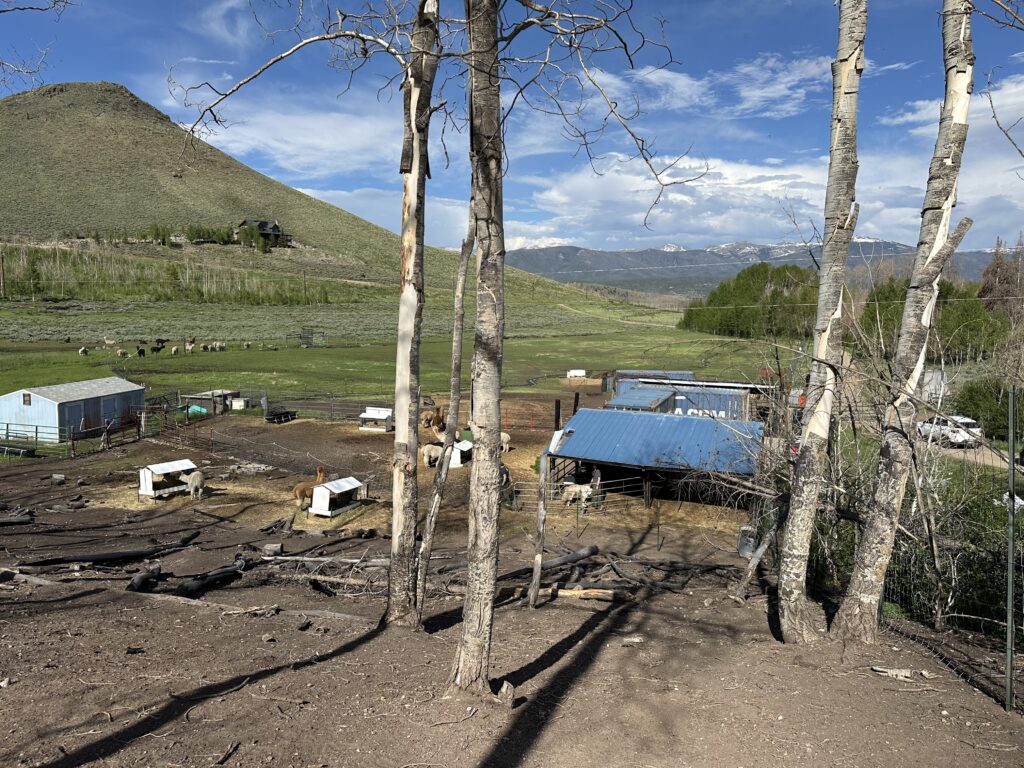
Saying we must coexist with wildlife is one thing but doing it can raise questions and often requires thoughtful, proactive strategy. That’s why the Mountain Lion Foundation aims to help people do both. We drove through scenic Grand County to visit an alpaca ranch with the CATs Campaign Manager, Sam Miller, who lives in Grand County.
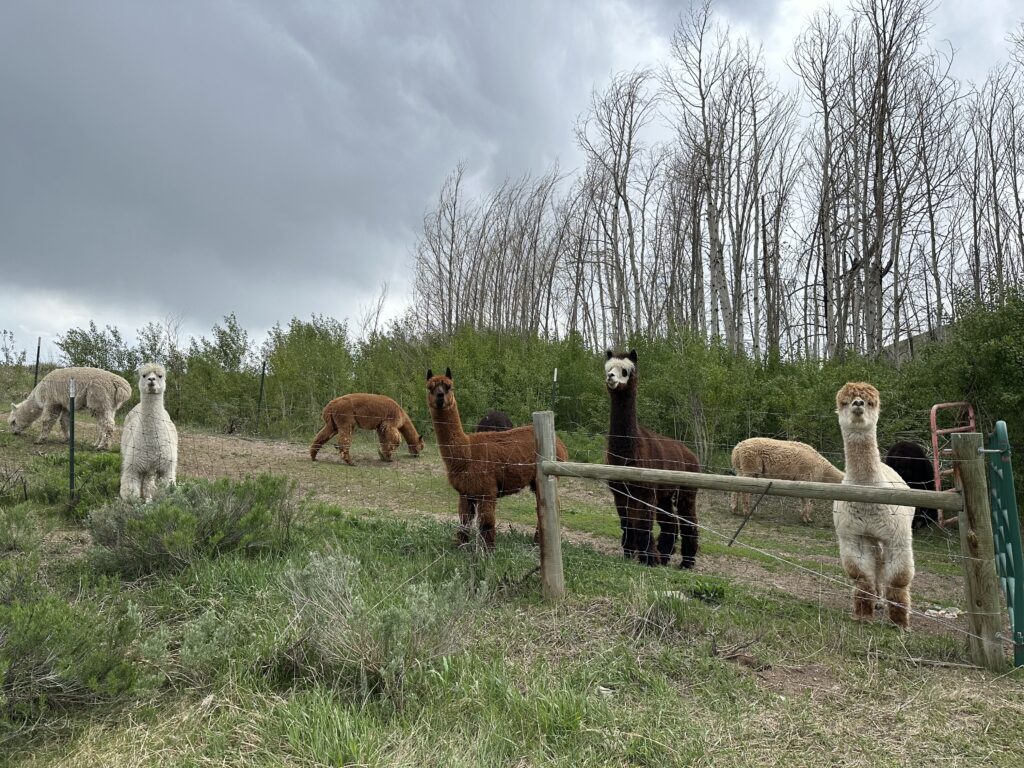
There we were greeted by thirty alpacas and three Great Pyrenees puppies, eager to escort us to the house’s door. We sat down with the couple, who told us of their recent struggles coexisting with wildlife on the ranch. They suspected they had lost two livestock guardian dogs (LGDs) and one alpaca to mountain lions, one of which was confirmed by state agency personnel. Using LGDs is a tried-and-true method for protecting livestock, and it’s very rare for a cougar to kill an LGD, but it does happen. The couple felt especially bad about the mountain lion that Colorado Parks and Wildlife killed because of their losses.
The ranchers had recently acquired the three LGD puppies, which is a great choice — LGDs are most effective in a group. But despite their size, the pups aren’t ready to be the sole defenders of their flock without further training and maturity. The alpaca ranch had been hit hard over the years with wildfires: Their barn burned down, and there was damage to their fences at multiple points. After these hardships, the couple decided they were open to any help they could get to prevent more losses.
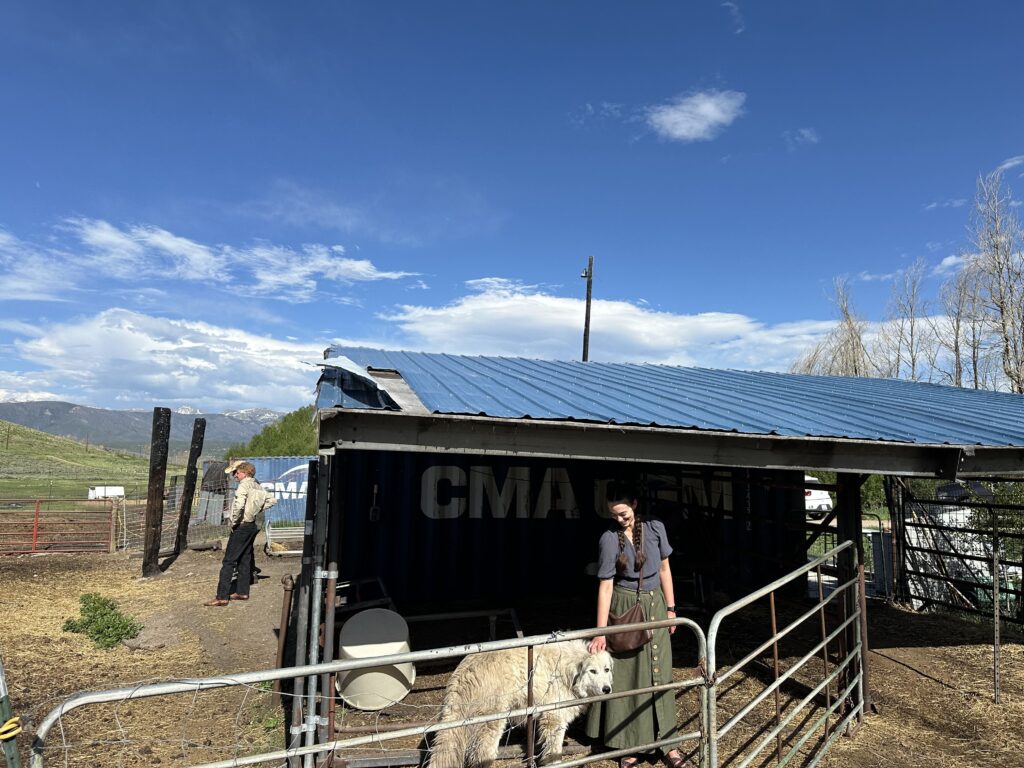
After hearing their story and assessing the property, the Mountain Lion Foundation decided to take on the project of creating a more carnivore-safe ranch for their alpacas. We plan to return this fall to the ranch to help make their ranch safer for their alpacas and guardian dogs — and keeping livestock safe also keeps the local mountain lions safe because state agency personnel aren’t called in to lethally remove any lions.
Our mission to “ensure that America’s lion survives and flourishes in the wild” is a lofty one. Our work in Colorado exemplifies some of the ways that the Mountain Lion Foundation sets out to accomplish that mission through education, advocacy, and coexistence. Stay tuned to learn more about the Mountain Lion Foundation’s work to protect and support America’s lion.



 Facebook
Facebook Twitter
Twitter Send Email
Send Email